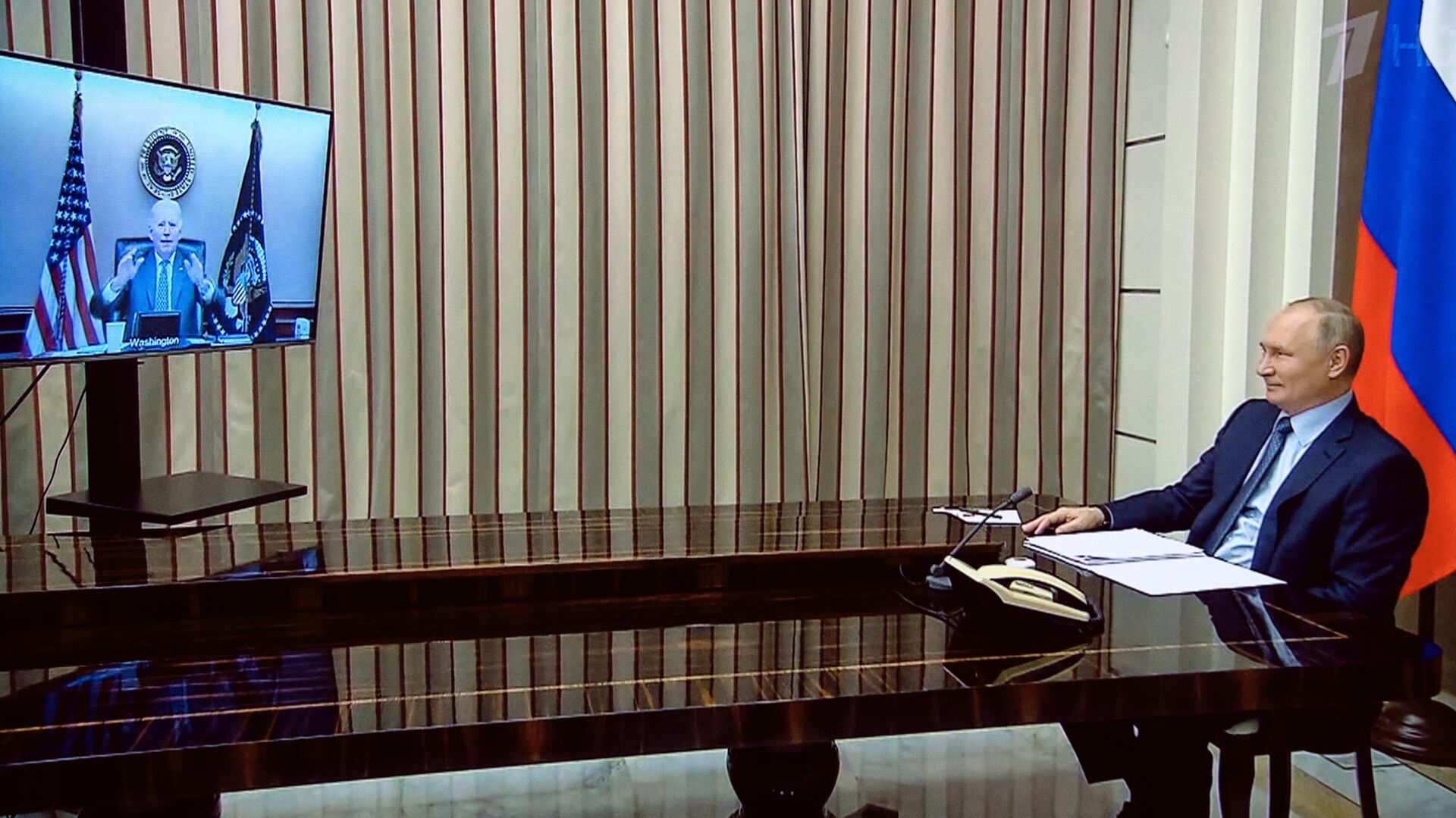Ukraine Tensions Remain High After Putin-Biden Talk as Neither Side Likely to Give Ground

© Sputnik / Sergey Guneev
/ Subscribe
MOSCOW (Sputnik) - Talks between the Russian and US presidents have done little to dissipate tensions mounting over Ukraine as neither side wants to blink first by taking steps towards appeasement.
Russian President Vladimir Putin denied plans of invading Ukraine after the Tuesday video call with US President Joe Biden. He instead accused NATO of ignoring Moscow's "red lines" with its eastward expansion and demanded that it stop seeking to incorporate Ukraine. Biden ruled out making such promises but said he would not send troops to the country if tensions escalate. He also threatened Russia with sweeping new sanctions were it to invade its neighbour.
A State Department official confirmed to Newsweek magazine on Thursday that no deals were made, or even discussed, during the much-touted video call, which came as the West accused Russia of amassing troops on its border with Ukraine. Russia said it was free to move military personnel anywhere within its own territory.
Thomas Whalen, an associate professor from Boston University's Social Science Department, told Sputnik he was "greatly alarmed" by the stalemate over Ukraine.
"It reminds [one] of the tinderbox situation that existed in the Balkans prior to the outbreak of World War One in 1914. Biden and Putin are like two ships passing in the night. They are both locked into their positions," he said.
Continuing the parallel with WWI, Whalen warned that any unforeseen incident could turn up the heat under the simmering Ukrainian conflict, drawing the rest of Europe into a wide-scale confrontation.
"The problem is when a wild card is thrown into the situation to set things off... Things could quickly escalate beyond the diplomatic powers of Biden and Putin to resolve. Europe and the world would be the loser then," the expert said.
Paul Poast, an assistant professor from the Department of Political Science at the University of Chicago, was less alarmed by the possibility of a European war, but he said a scale-back in US-Russia tensions was no more likely, as neither wants to appear to give ground. He compared the situation to that of an unstoppable force meeting an immovable object.
"The situation is difficult to fully resolve because both sides have entrenched positions... This doesn't mean that war must be the outcome, but it's difficult seeing how the two sides can fully resolve tensions under such circumstances," he said.
M. V. Ramana, the Simons Chair in Disarmament, Global and Human Security at the University of British Columbia's School of Public Policy and Global Affairs, said the two leaders were too constrained by domestic politics to be seen as offering concessions to the other, a "prerequisite" for diplomatic negotiations.
"As such, I don’t see a decrease in tension over Ukraine... The stakes are very high, and the standoff can quickly escalate, both because of what all the armed forces are doing or planning, and because of domestic politics," he warned.
Despite the domestic pressure on Biden to remain tough on Russia, he appears to be limited in his options for influencing Putin. Even Biden's threat to again leverage sanctions against Moscow and arm Ukraine would simply enhance the policies already in place, according to Poast.
Michael Desch, the director of the Notre Dame International Security Center, told Sputnik he believed neither side wanted war, but defusing tensions would take some time.
Desch suggested there is not "much real interest" in the US in bringing Ukraine into NATO, "but once President Putin raised it explicitly, it became a credibility issue." He said the two might want to discuss it as part of a wider range of issues that go beyond Ukraine, including arms control, climate change, Iran, and China.

